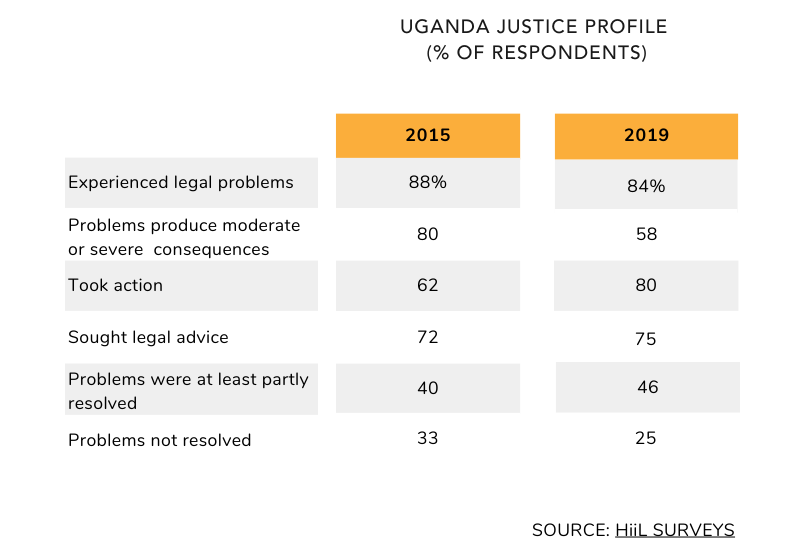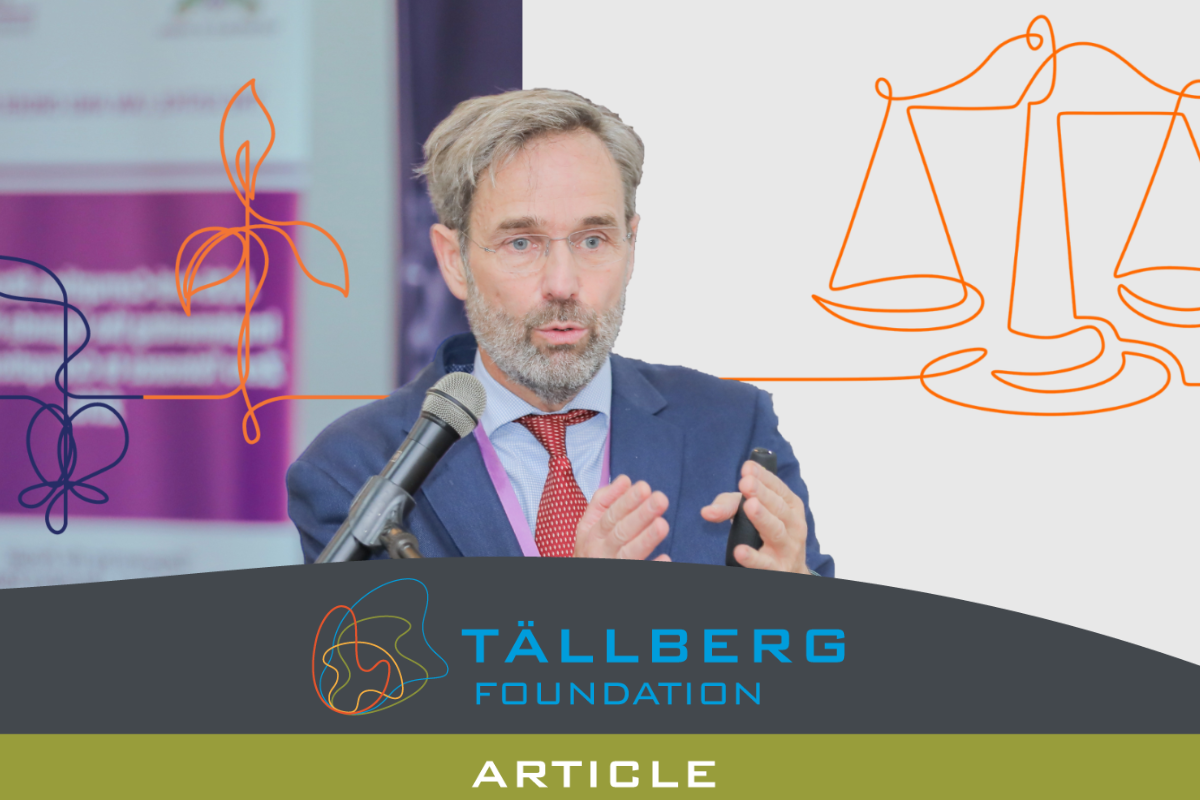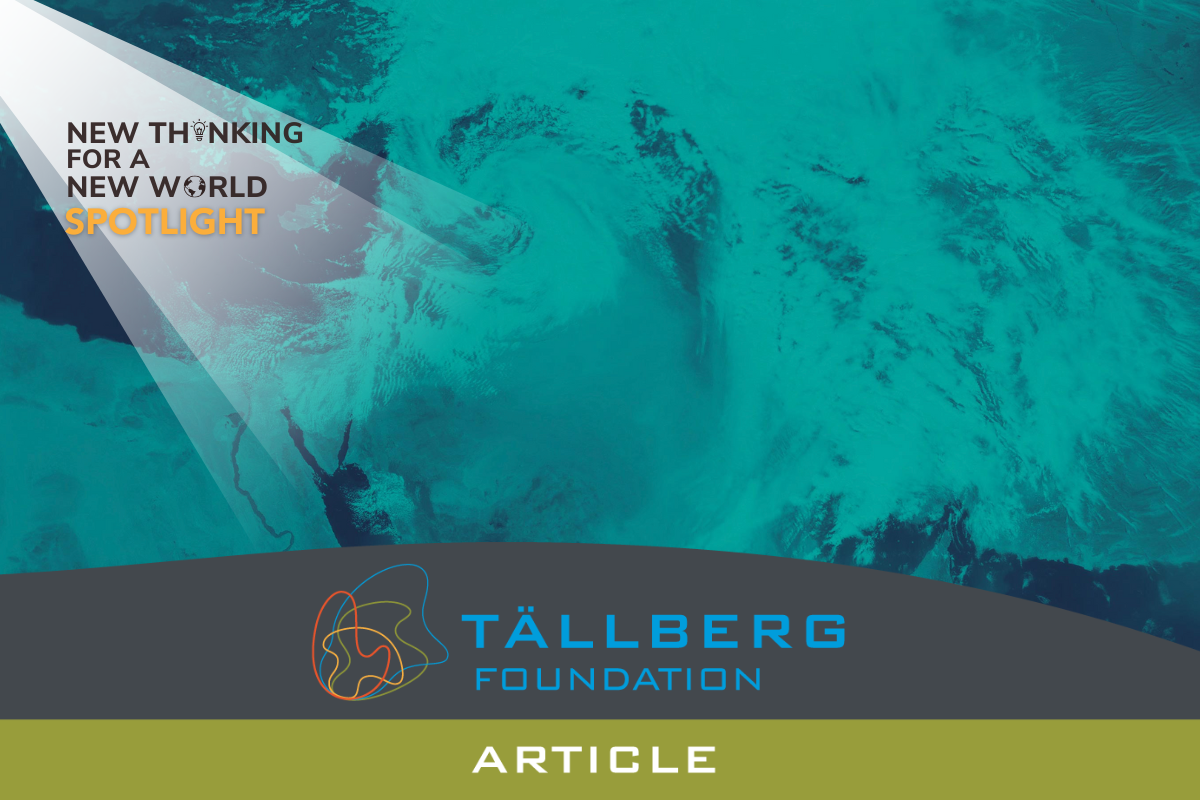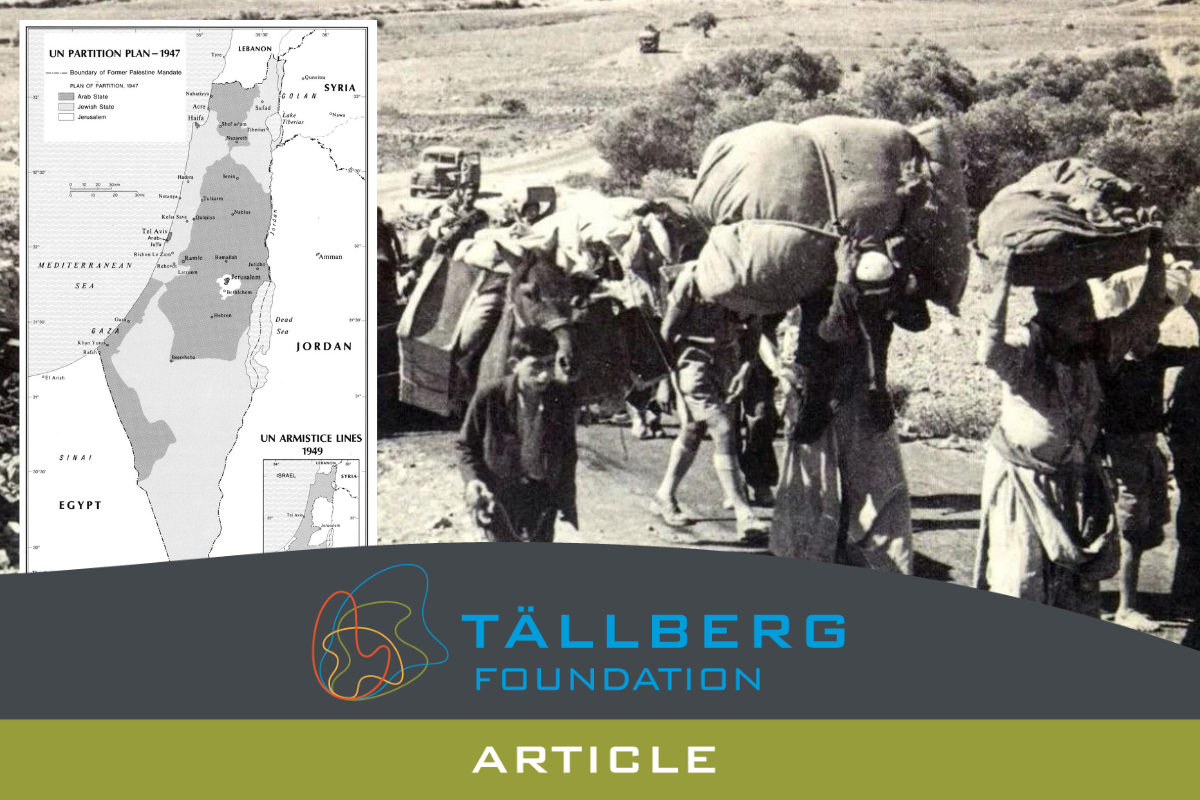“All are equal before the law and are entitled without any discrimination to equal protection of the law.”
Article 7, Universal Declaration of Human Rights
Practically every country in the world has long since signed the Universal Declaration; indeed, who doesn’t purport to believe in universal access to justice, even if sometimes it is brutally mis-defined? Why then are so many people in so many places mistreated by their judicial systems?
“Justice systems are not held accountable for outcomes,” answers Sam Muller, who founded and leads The Hague Institute for Innovation of Law (HiiL). In effect, he continued during a recent New Thinking for a New World podcast, they worry about the number of judges, the length of backlogs, the size of law firms—instead of “the amount of prevention and resolution they are able to organize.”
Muller and HiiL are committed to flipping the approach. They focus on “people-centered justice” and base their work on collecting data with the imperative of understanding what issues actually affect citizens and, then, what does and does not work when it comes to justice. According to Muller, 60-70% of the justice problems people experience are about land, employment, family, small crimes, neighbor disputes, money or access to public services. Knowing the problems, working towards outcomes and best practices to solve those problems, “can be done in every culture.”
“Focus on the outcomes, instead of the inputs; that’s the kind of change we want to see,” he says.
And that’s where data come in. HiiL began collecting data with the imperative of understanding “the justice needs of people… their journeys to justice.” HiiL focuses on innovations; the “evolution of systems, of practices, of opportunities, of ways of doing things.” Data create benchmarks for progress.

HiiL is active in at least 20 countries. Country work always starts with data collection, and those data surveys are regularly updated. For example, HiiL’s surveys of Uganda, summarized above, shows a country headed in the right direction, albeit with many challenges. As Muller says, “Uganda is one country where, despite a lot of things that you read in the newspapers, there’s a committed group of people in the leadership— from the judiciary all the way to a number of really impressive civil society organizations—who are starting to think in terms of outcomes, and not inputs. Again, that’s the change we want to see.”
Of course, cultures differ. Muller admits that the word “justice” means different things in the Netherlands or France or Kenya. But, he argues, people everywhere have the same problems: land encroachment, boundary disputes, employment issues, divorce and other family problems, access to public services, small crimes, etc. “The approach that we stand for: ‘Okay, what kind of outcomes would you want to organize around these particular land problems or employment problems?”
“So you can start working with these outcomes, and you can start working with best practices to get these outcomes to people, you can start working on innovation for delivery models that actually get the interventions that work best to the people, and you can start working on an enabling environment to make that happen. And that’s a bit of a different approach, than this more legalistic, philosophical question. Justice practitioners in every country where we work get it.
There could be certain practices that are universal; there are certain practices that are more local… One thing that we do know—and we see this particularly in postcolonial settings—(are), laws that were adopted in 17th century England or France that somehow found their way into a lot countries in Africa. They are now being applied, have never really been renewed, have never been relooked at, are not being innovated; they’re just being applied. The excuse for them not working, people say, is culture. Wrong: they’re probably not the right procedures for solving the problems that you want to solve.”
And that’s really the heart of Muller’s—and HiiL’s—approach to justice: it should be about solving practical problems in practical ways so people can live safer, better and more prosperous lives.
How might that approach apply to post-war Ukraine, a country where HiiL has been active in the past?
Muller believes justice systems on the whole are a “reflection about how a society deals with conflict, how a society talks, what societies find important.” The focus on war crimes—documenting and condemning them—is important, yet there should also be effort going into thinking about “modernizing the mundane justice of every day.” The number of inheritance disputes, land disputes, destroyed companies and housing, and the countless legal issues that follow are piling up with the debris of a broken country. For better or worse, there is only a certain capacity to deal with these problems he points out.
“The road to peace and rebuilding cohesive societies is much more complex than war crimes trials,” Muller observes. He argues that, while important, these trials are often highly symbolic as the victim country or the international community tries to show that they are doing something about past atrocities. “But it takes much more to get back to peaceful and inclusive societies. And that to me is always the goal.”
He reaches into his own history for an example. A visit to the Democratic Republic of Congo in 2004 helped inspire Muller to establish HiiL. There were war crimes trials in progress, yet he observed displaced people, families kicked off their land, people sorting inheritance and land disputes; many, probably most, people were simply trying to move on. His conclusion: war crimes trials are important for accountability, but societies need to find ways to “deal with conflict resolution in everyday lives, so people can rebuild.”
It’s hard to imagine a country where that approach—people-centered justice—wouldn’t produce better outcomes for almost everyone.
***
Sam Muller recently spoke with Alan Stoga as part of the Tällberg Foundation’s “New Thinking for a New World” podcast series. Listen to their conversation here or find us on a podcast platform of your choice (Apple podcast, Spotify, Stitcher, Google podcast, Youtube, etc).
***
ABOUT OUT GUEST
Sam Muller is the founding director of HiiL. Its mission is to empower 150 million people to prevent or resolve their most pressing justice problems by 2030. An international lawyer by training, Sam works on justice strategy and innovation at the highest political levels, connecting knowledge about needs and what works with change processes that make a difference. The clients he has worked for include governments, international businesses and leading civil society organisations.
Sam also led the setting up of the Justice Leadership Foundation and the Wildlife Justice Commission.
Before his work at HiiL he was closely involved in building the International Criminal Court. He worked as legal adviser at UNRWA and the then newly established ICTY. He holds a law degree and a doctorate from Leiden University and taught there. He has published and spoken extensively on various topics: legal trends and strategy, justice leadership, justice innovation, and international justice issues. Sam has served on many boards. He is currently chair of the supervisory board of World Wildlife Fund – The Netherlands and a member of the International Board of WWF. He was chair of the supervisory board of the Wildlife Justice Commission until September 2021 and board member until April 2022. He served as Senior Adviser to the Task Force on Justice that published a ground-breaking report in July 2019. He was active within the World Economic Forum on the topics of rule of law and justice, chairing two agenda councils. Sam is an alumnus of the Future Leaders Programme of the French Foreign Ministry and of the High-Performance Leadership Programme of the IMD. He is also a facilitator of leadership retreats for the Foundation for Natural Leadership. In November 2022 he was awarded the 2022 Tällberg-SNF-Eliasson Global Leadership Award “for his innovative work in creating and implementing new, concrete concepts and ways of working for law practitioners that focus on solving people’s real needs and thereby reinforce their commitment to democracy.





0 Comments